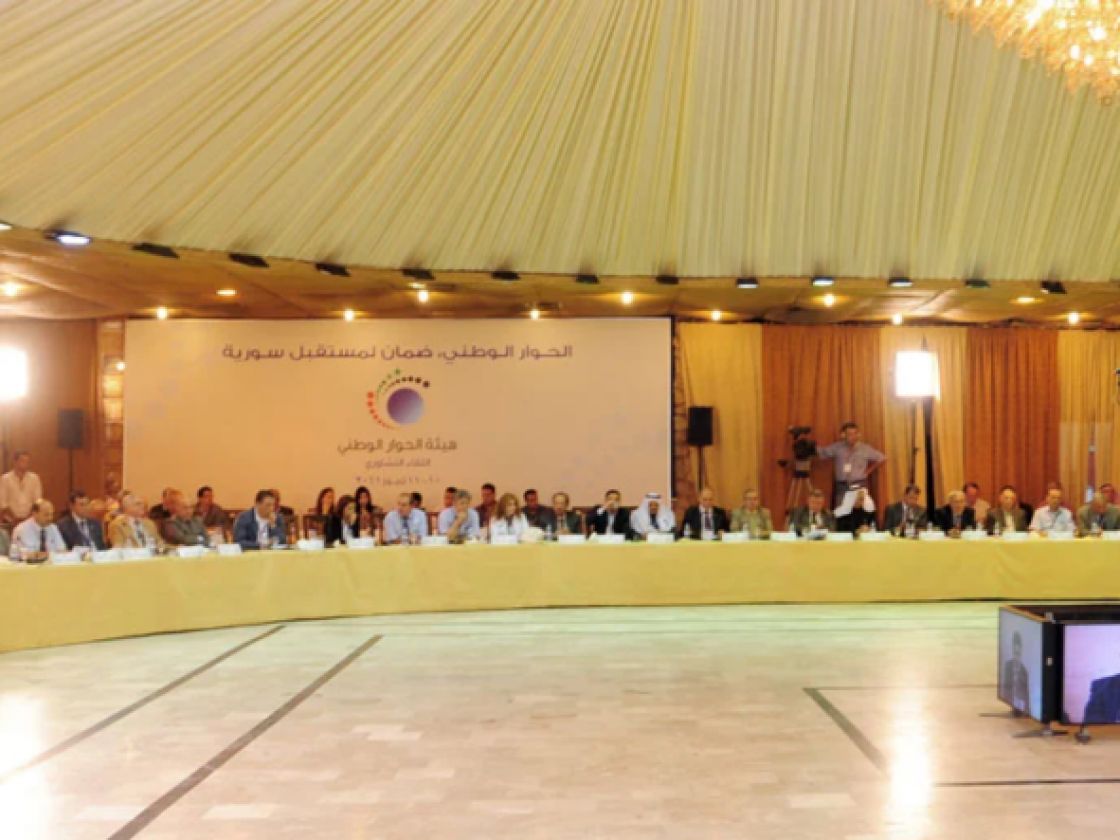- Editorials
- Posted
Kassioun Editorial 1085: Who is with Dialogue in Damascus and Who is Against it?
In the opening session of the Constitutional Committee in 2019, the Moscow Platform for the Syrian opposition called for transferring the dialogue to Damascus, while securing the necessary guarantees. The call was met with a categorical rejection by the opposition’s extremists accompanied by a “punishment”, and the silence of the regime’s extremists that essentially solidarized with the opposition’s extremists in their refusal to dialogue in Damascus.
The position of both sides was not surprising. Since the opposition’s extremists abstained from attending the consultative meeting in Damascus in 2011, and the regime’s extremists refrained from implementing the majority of its recommendations, the two sides together paved the way towards the internationalization of the Syrian crisis, and solidified this by adopting the slogans of “military decisiveness” and “overthrowing”, which are the two slogans that remained the main action plan of the two sides over the past years until now. Additionally, any talk about dialogue and a political solution – despite its relative rarity – was merely a necessary and camouflaging “tactic” within this plan.
After the crisis entered the stage of internationalization and the Geneva stage, the regime’s extremists informally used the talk about dialogue in Damascus, not for the sake of reaching a solution, but rather to work against the dialogue in Geneva. Now that the role of the West has greatly weakened, and it is actually possible to transfer dialogue to Damascus and towards containing internationalization, voices have begun to rise that accuse of treason and attack the idea of dialogue in Damascus. These same voices were calling for dialogue in Damascus and accusing of treason dialogue in Geneva a few years ago.
What does dialogue in Damascus mean?
- Dialogue in the country’s capital means finally and practically ending the “military decisiveness” and “overthrowing” discourses, and admitting that the solution cannot be except through dialogue and consensus. It also means the Syrians sides really and actually recognize one another, which would be the first step, which has not yet been realized, of the comprehensive, real, and productive dialogue process.
- Dialogue in Damascus means admission by the various sides that they are discussion the fate of all of Syria, as one united country, and not as areas of influence, from where each side sets out in the hope of controlling other areas or withdrawing to its own.
- Dialogue in Damascus means shrinking international interferences to the minimum, and means joint preparation by Syrians to restore their country’s regional sovereignty, and the Syrian people’s sovereignty over their country.
- Dialogue in Damascus means shrinking to the minimum American and Zionist influences that are exercised in the various international forums over the political process as a whole, leading to completely eradicating these influences.
Who is against dialogue in Damascus?
The West as a whole, especially the Americans and Zionists, stand against dialogue in Damascus, because it is the actual path leading to implementing UNSC Resolution 2254. They are doing their best to prolong the life of the “quagmire”, leading to final disintegration of Syria.
Likewise, the extremists in the regime and the opposition are in full agreement – just as in dozens of other matters – on standing against dialogue in Damascus. This is because a real dialogue in Damascus to implement 2254 means the beginning of the end for war economy, and more importantly, it is the first step on an obligatory path that leads to the voices of Syrians inside and abroad rising so they themselves determine their fate, and implicitly to determine the political future for all the political forces on the scene.
The terrified voices that are rising these days in refusing dialogue in Damascus and accusing anyone supporting it of treason, are truly promising. These voices reflect the understanding of those who are behind them that the circumstance has matured in this direction and towards the solution. Therefore, they started working blatantly against it and therefore against the solution as a whole, which will lead to the desired end through the full implementation of 2254, in the interest of the Syrian people and against the interests of the West, the Zionists, and their supporters from the various sides.


